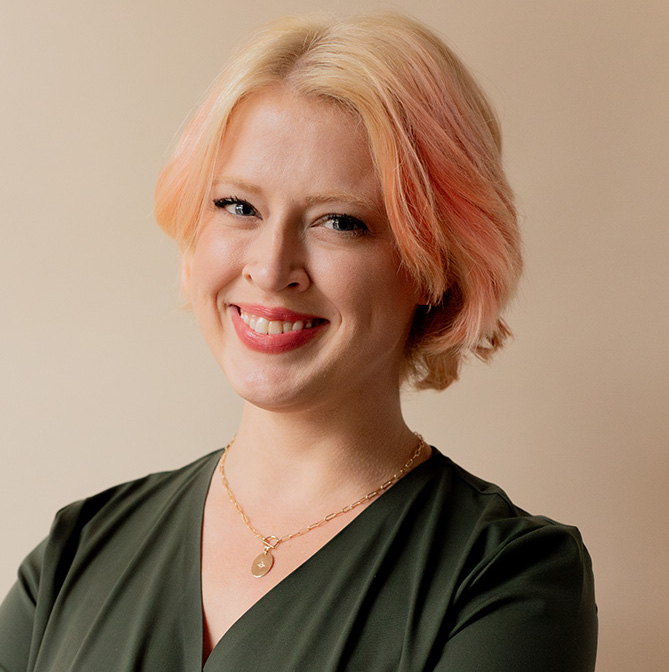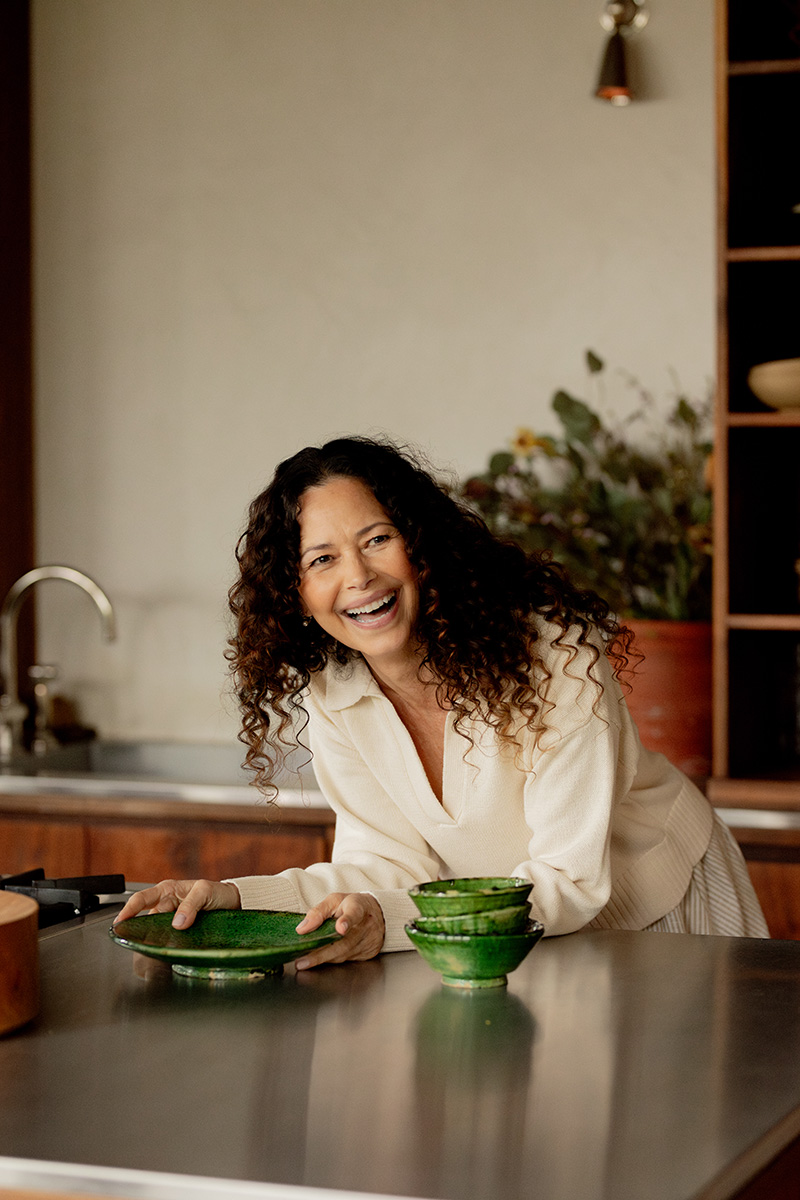
Why You Should Revisit Your Old Journals
My first diary was a beige, floral-covered hardback with a small gold lock on it. It had come with a matching address book that looked like something you might find next to a rotary phone in an elderly aunt’s house. Still, it was mine, and the flimsy lock made me feel like my words were powerful, they were worth protecting.
It was that journal that housed my diary entry from September 11th, 2001, with all the failure to understand that an 11-year-old kid could muster. (I recounted the details in a short entry, offered up my prayers, and then mused about whether or not our Indiana standardized tests would be canceled. They went on as usual.)
As I’ve journaled on and off throughout my life, I’ve literally carried my stories with me, toting a stack of notebooks and a great big binder of my teenage poetry with me from apartment to apartment. For so many years, those journals remained unopened since the last page was filled. What do people actually do with old journals?
Some have a ritual where they re-read their past year’s journal on New Year’s Day, reflecting on the growth they experienced that year. Others never revisit journals, hiding them away on a high shelf, like an archaeological site waiting to be dug into. Still others destroy their old journals — this hurts my soul to its core, but I know we all have our ways of managing sentimental items. Perhaps they’re from a time you’d rather not remember, or remember too well, or where nothing particularly interesting happened.
But I think keeping your journals on hand and re-reading them is an invaluable tool for getting to know yourself. If you’re an avid journaler like I am, you’ll uncover a wealth of wisdom and lessons that you hadn’t realized you were learning at the time. I’ve found turning back to the old pages of my writing is especially helpful during difficult times, or when going through a big life transition.
“Keeping your journals on hand and re-reading them is an invaluable tool for getting to know yourself.”
In the past few months, I have cracked open my notebooks and reminisced about how I’ve grown and changed as time has passed. In particular, I re-visited 2017 through 2022, some pivotal years in my life where I was particularly journal-oriented. I laughed, I cried, I marveled at the lessons I learned.
Here’s why I think you should set aside some time to go back and read your old writing, too. (And for the sake of solidarity, I’ve included some of the least embarrassing quotes that stood out to me from my own journals; would love to see yours in the comments!)
1. You’ll gain more self-compassion.
“So often, I surprise myself with my writing after the fact — like everything current is lacquered thick with self-loathing, and after that wears off, there is something beautiful waiting desperately for me to love it. An orphaned clump of words calling back to me to claim her.” (Emily, 2018)
It’s easy to judge ourselves harshly when we first go back to our old journals — we were objectively younger, less knowledgeable, and less experienced. I used to scoff at my old writing, calling myself immature or indecisive, laughing at the obstacles I used to face as if they were nonsense.
“The self-compassion you extend to those younger versions of yourself will ripple through your day to day and help you feel more at home in your body and mind.”
But as the years go by, I’ve realized that all my old writing is still a part of me, it’s all a part of the process of becoming who I am in the here and now. And my awareness and compassion towards that old self will be foundational to my future self — this is why I want to keep these journals in the first place. Symbolic, yes, but as a tool to remind myself that what I experience does matter, at least to me.
So don’t write off anything as unimportant, whether you’re reading or writing. If it’s in your mind and wants to be on paper, let it. Because somewhere, your future self is reading and remembering what it was like to be you in this moment. I believe that the self-compassion you extend to those younger versions of yourself will ripple through your day to day and help you feel more at home in your body and mind.
2. You’ll get a fresh perspective — and find creative ideas.
“I want to write a poem called ‘Indigo’ that contains the line ‘I want to kiss you into all the corners of the night, both ends of the day, and more if there’s time.'” (Emily, 2021)
The passage of time is always difficult to navigate, and the years since 2020 have been a blur. But reading old notes about our lives can help bring clarity, and you might even find some inspiration for your creative endeavors.
It’s like opening up a dialogue with your past self, looking for their advice on what you should do next. (I especially like to muse on what advice my 11-year-old self would offer, and embrace the childlike approach to soften my adult expectations). Reading about your past really does help enlighten the present.
Plus, I find some creative ideas for future inspiration — like the entry above, I dropped little breadcrumbs that I can return to with more years of experience. I still have never written that poem, but not because I haven’t wanted to. The plan is to keep it tucked away (I say, as I post it on the internet) until the day I have the right energy, experience, and notion of romance to give it a proper poem-home.
3. You’ll find yourself, and see what you’ve manifested.
“I’m so tired of myself. Why can’t I live the energized and adventurous life I daydream about? Where is that girl?” (Emily, 2017)
Many, many of my journal entries have this similar theme — who am I, and what am I doing here? I’m sure you’ll find entries in your own notebooks like this. But those questions aren’t wasted; they’re little loose threads that you follow for years until you wake up one day to find them answered.
I’ve spent many mornings and nights trying to find myself while I write, only to realize it’s easier to find myself while I read. It’s kind of like how you have to listen to learn, going back to old journals is giving yourself the listening ear that you may have been craving at the time. If the version of me who wrote that entry above were to see me now, she’d be fascinated. I *have* done some rather adventurous and energizing things, and I intend to do more.
I especially love entries where I address my future self — five years ago, I was only putting pen to paper about the future, and now I’ve manifested many of those things I dearly desired. Conversely, my entries remind me that life can change, drastically and unexpectedly, in a moment — if I could rewind and tell 2018 Emily about 2020, I wouldn’t even have been able to comprehend it.
“I’ve spent many mornings and nights trying to find myself while I write, only to realize it’s easier to find myself while I read.“
4. You’ll see how much you’ve grown, even when it’s not linear.
“I can’t tell if my gut is trying to tell me something based in truth, or if it’s just based in sadness.” (Emily, 2020)
Sometimes it’s hard to see how we’ve grown if we don’t have access to the past (am I the only one who often assumes I haven’t changed or grown at all?)
Yet, so many of my old entries touch on topics that I’ve since gained more clarity on; and I can see, now, where the tiny seedlings began to take root. The uncertainties around finances, careers, relationships — I now see which ones were minor, and which ones were about to snowball.
Seeing the moments where your gut was actually right is such a fulfilling practice, and a powerful reminder to trust your own intuition. Diving back into these archives, I can see how my decision-making process has grown, and how my self-confidence has blossomed over the years.
While evolution doesn’t feel eventual when you’re mired in a particular moment, looking back offers us a ten-thousand-foot view of our path and all the growth we’ve achieved along the way.
5. You’ll see old heartbreaks in a new light.
“My heart is ready to be open. I’m ready to shed the red chaos and embrace the sweetness of peace. I am prepared to make the next step, the transition. I am ready, my dear world, to show you how beautiful my wings have become.” (Emily, 2023)
It wouldn’t be a conversation about journaling if we didn’t talk about the heartbreak we often record in our journals. Reading our old perspectives about loss gives us tools to move forward through future heartaches. It’s an exercise in resilience: How did you cope with your last heartbreak, and what lessons did you carry forward from it?
“Reading our old perspectives about loss gives us tools to move forward through future heartaches.”
When I look back at 2020, I see how seriously grief and isolation impacted me at the time. I also see, now, that enduring those moments made me more resilient moving forward. Those lowest points are over now, and I am still standing (and grateful to be so).
If you do decide to re-read your journals, I do want to emphasize that it’s important to care for your heart in the process. Don’t open old journals on days you’re feeling emotionally vulnerable, and have a plan in place for self-care afterwards. (I find that a good long walk and a shower are the best next steps for me after reading my old writing).
When you’re done, make note of what stood out to you; did you especially like reading the minutiae of the day? Or the feelings you were overcome with? Or perhaps you were more interested in the little sidebar notes like what music you were listening to?
Take what you’ve learned from reading, and add it to your writing practice. I’ve found that writing notes to my future self, as well as including at least one positive event from each day, helps make my current journal a more enjoyable place for me to re-visit someday in the future.
So gather your journals, friends, and give yourself the gift of spending some time in your own past. And, if you’re like me with a few rough years in the mix, be kind to yourself. Perhaps you’re in those rough years right now. All I can say is that I do believe it gets better, just maybe not on the timeline we would most prefer.
I’ll leave you with a note I wrote at the beginning of this year, as a reminder that growth, self-compassion, and clarity may only be a few old journal entries away:
“I am stepping into joy and walking confidently forward. The weight I let shape me for so long is no longer something I feel I must bear, and I have gently set it aside out of love — for myself. […] I can be the emanation of my past selves and still love them as I let go of their old beliefs. I am good. There is no more barrier of “enough,” I am good. Full stop.” (Emily, 2024)
Emily McGowan is the Editorial Director at The Good Trade. She studied Creative Writing and Business at Indiana University, and has over ten years of experience as a writer and editor in sustainability and lifestyle spaces. Since 2017, she’s been discovering and reviewing the top sustainable home, fashion, beauty, and wellness products so readers can make their most informed decisions. Her editorial work has been recognized by major publications like The New York Times and BBC Worklife. You can usually find her in her colorful Los Angeles apartment journaling, caring for her rabbits and cat, or gaming. Say hi on Instagram!




